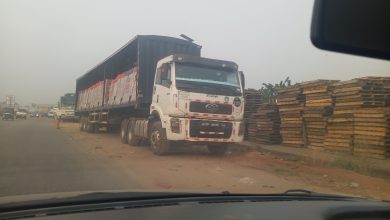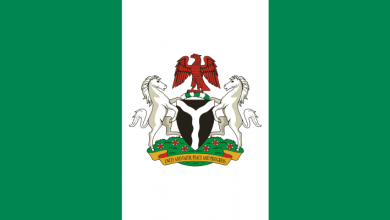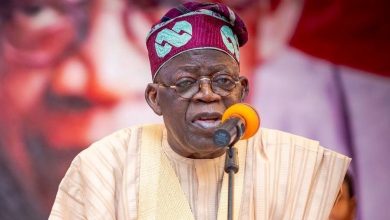By Augustine Ibeh
Nigeria is rich in natural and human resources, and has enjoyed uninterrupted democracy for more than 20years, yet it remains underdeveloped. At least part of the country’s problem rests with its treatment of the nation’s news media.
The news media are the vehicles through which information is transmitted to the society. According to Bill Kovach and Tom Rosenstiel in The Elements of Journalism, “the news helps us define our community. It also creates a common language and common knowledge rooted in reality. Journalism helps to identify a community’s goals, heroes, and villains”.
The importance of the media in the development of any society is determined by the dual roles they play. To the government, the media are watchdogs; to the citizens, they are channels to information. To this end Chinyere Nwabueze, an experienced Nigerian communication researcher, opines that “the Nigerian society… needs the mass media because governance and the well-being of the people cannot be entrusted to politicians, the elite and the bureaucrats. This underscores the watchdog role of the press to ensure the checks and balances that make the society work.”
Freedom of the press is paramount to carrying out these all-important dual functions of nation building. Any hindrance to this becomes a great impediment to development – except within constitutional limits and regulatory norms.
In Nigeria, the freedom of the press is protected by section 39 (1) of the Constitution of the Federal Republic of Nigeria. It affirms that “every person shall be entitled to freedom of expression, including freedom to hold opinions and to receive and impart ideas and information without interference.” More pointedly, section 22 asserts that “the press, radio, television and other agencies of the mass media shall at all times be free to uphold the fundamental objectives contained in this Chapter and uphold the responsibility and accountability of the Government to the people.” The question then is while the freedom of the press in Nigeria is constitutional, is it respected?
Despite its constitutional protection, freedom of expression is under serious attack in Nigeria. While covering events or disseminating information, journalists have been attacked; some even lost their lives. This has affected the ease with which the media do their work in the effort to source, access, assess and report credible information as a way of holding government accountable and empowering citizens with the right information on how their government is approaching the development of the country.
On January 6, 2019, Nigerian armed soldiers shut down the Daily Trust’s Media office located in Maiduguri and arrested Uthman Abubakar, its Northeast regional bureau chief, along with a reporter, Ibrahim Sawab. Later the same day, more soldiers invaded the media firm’s head office in Abuja, arrested a staff and carted away dozens of computers. According to Sani Tukur,Vaguard news reporter “The Army spokesperson accused the newspaper firm of disclosing details of planned military operations against Boko Haram terrorists.” The pertinent question remains who revealed a national security classified information to journalists? And to what extent can journalists have access to and transmit such sensitive information, weighed against the balance between professional ethics and national interest?
Similarly, on August 20, 2020, former minister of aviation, Femi Fani-Kayode, verbally abused a journalist, Charles Eyo, for asking a question Kayode perceived insulting during a press briefing. Hours later, his security personnel threatened the journalist. “It is absurd that journalists are abused, two even lost their lives while covering the #Endsars protects. This is abuse of press freedom” said Anthony Nduka, Director, Trinity Press, Onitsha.
According to the analysis by the Coalition for Whistle Blowers Protection and Press Freedom,” …as at May 2019, the total number of physical attacks on reporters was 189; equipment searches and seizures, 9; equipment or property damage, 17; arrests, 60; denial of access, 21; threats, 44 and ‘harassment, 12. Of these attacks, 322 were on media houses, while the remaining 30 were meted on individuals. Also, 95 per cent of journalists affected were males while the rest were females.” This shows the level of attack on press freedom.
“Another form of abuse of press freedom stifling development in Nigeria is corrupt practices in media profession” said Charles Agwadike, director of Spiritan Press. Most prevalent among them is the “brown envelope journalism.” According to Adeyemi in Nigerian Media And Corrupt Practices:The Need For Paradigm Shift : “The brown envelope as a form of financial gratification is viewed by most people as a form of bribe paid by news sources to journalists to enable the former to get favourable news coverage” This amounts to selling off their constitutional rights on the part of the journalists.
A good example of corruption in journalism is the story of James Ibori, a Nigerian ex-governor, who was convicted for misappropriation of state funds and money laundering to the tune of £100 million. While serving his terms in the UK prison, the state government organized yearly state-wide birthday celebration for him. Instead of challenging this senseless and immoral act, capable of the erosion of values, journalists covered this annual event without questioning whether such the the celebration of this thief of public funds was appropriate. This was repeated even on a larger scale when he finally returned to the country with laudatory media coverage. When criminals of this repute are celebrated as state heroes it pinches on the credibility of both the media and the morality of misappropriation of state funds meant for development. In some other political climates, a more responsible firms would not only question the rationale and propriety of spending public funds to celebrate a convicted criminal involved in financial misappropriation and money laundering but would outrightly condemn it as systemic destructive of societal moral values with implication for future generations.
The fearless reporting of the events related to both Covid-19 pandemic and the last presidential election shows that the major difference between the development of U.S. and Nigerian press and points up how both countries handle press freedom and professionalism..
With an effective legal system, the traditional media firms in the U.S. are more effective because of minimal abuse of media freedom. The U.S.news media have proven their professional efficiency in carrying out their constitutional responsibilities to both the citizens and to the government. The possibility of manipulating or pressuring the media to act unethically, irrespective of legal consequences or the citizens’ perception, is higher in a country like Nigeria, as in most developing countries.
When the societal watchdog is silenced, who holds the politicians accountable? Whose task is it to unravel the wrongdoings of the ruling class for the benefit of public knowledge? “The press was protected so that it could bare the secrets of the government and inform the people. Only a free and unrestrained press can effectively expose deception in government. And paramount among the responsibilities of a free press is the duty to prevent any part of the government from deceiving the people.” said Hugo Lafayete Black, one of the most influential U.S Supreme Court Justices of the 20th Century.
History has shown that the abuse of media freedom in Nigeria promotes, or at least condones, corruption among political leaders which invariably cripples national development. However, the enthronement of the relevant laws and promotion of integrity can be a good way of handling the above stated problems. This will guarantee the respect and promotion of human rights with effects on media freedom, in line with the United Nation’s Declaration on Human Rights. Clearly, its Article 19 maintains that: “Everyone has the right to freedom of thought, conscience and religion; this right includes freedom to hold opinions without interference and to seek, receive and impart information and ideas through any media and regardless of frontiers.”
This aligns with Immanuel Kant`s theory of 18th century Categorical Imperative which in advocating for human respect postulates that you do not treat another human being as a means to an end, as it is imperative that we treat fellow human beings with dignity. This requires that we respect fellow human beings because they are humans and not animals. Consequently, the political class and security agents ought to respect journalists in view of their constitutional roles and their dignity as human persons.
In the same manner, John Rawls’ theory of justice from the late 20th century imposes on journalists the duty to shun corrupt practices and embrace the ethics of professional journalism. His “the veil of ignorance” opposes any form of class differentiation in the society as no one knows his place in society, his class position or social status. He further posited the liberty principle (meant to ensure that every person enjoys equal basic freedom in the society) and distributive justice (that proposes that a system of justice must provide a way to distribute the limited goods of the world). Applying this, journalists must realize that the public are entitled to authentic, undiluted and unbiased information detailing the stewardship of government. To be fair to the people, journalists must stop the “brown envelope” or “ATM” journalism in order to hold leaders accountable and convey the right information required by the ethos of professional journalism. Integrity should be the watch word while dignity in labour ought to be the focus.
With the proper enforcement of appropriate laws in the true sense of justice, and the promotion of respect and integrity among the political class and journalists, media freedom will be enhanced, corruption tremendously reduced, and development will progress geometrically. The silence or connivance of the media in under-reporting or misrepresenting information and the inability of holding government accountable, with direct or indirect link with the attack/abuse of press freedom, logically means leaving citizens at the whims and caprices of corrupt politicians, with dire implication for national development. To curtail this, measures must be taken by media agencies to properly train their journalists on their rights and obligations, guided by both constitutional and professional provisions, while guaranteeing their proper remuneration as a disincentive from illegal financial inducements.
*Rev. Augustine Mario Ibeh is a Catholic Priest of Congregation of the Holy Spirit (Spiritans) , Province of Nigeria South East and a graduate student of Media Arts and Technology, Duquesne University, Pittsburgh, United States.*



